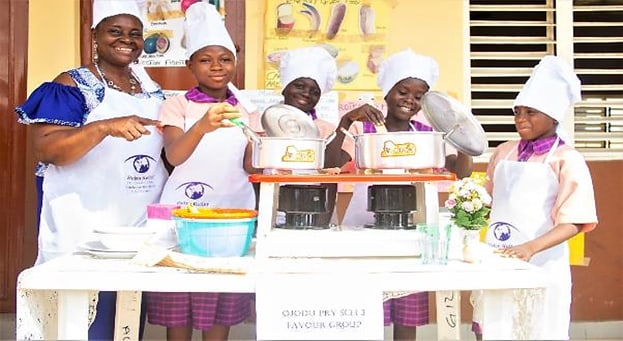How Mondelēz is Promoting Good Nutrition and Healthy Lifestyles in Nigeria
Nigeria has high levels of food insecurity and malnutrition. About 37% of Nigerian children reportedly suffer from chronic malnutrition, resulting in cognitive and physical deficits. Undernutrition is a major health problem among children particularly in rural dwellings, while overweight and obesity are emerging health challenges in the urban areas.
Tuesday, December 01, 2020
Recent studies showed prevalence rates of stunting and wasting of 17% and 14%, respectively, among primary school pupils in Ikeja in Lagos, Nigeria, as well as 15% and 13% overweight and obese. A study of 200 primary school children in Lagos further revealed 38% were anemic. Also, while physical education is a compulsory subject in primary schools, there has been a systematic decline in its implementation over the past two decades with inadequate sport facilities and equipment.
Considering the prevailing nutrition situation among Nigerian children, there is clearly a need to formulate and implement nutrition education programs to correct malnutrition among school children in the country.

Since January 2018, with funding from Mondelez International (the majority owners of Cadbury Nigeria Plc), Helen Keller International (HKI) has been implementing a nutrition program across nine public primary schools within our host communities in Lagos, Nigeria. The program has the following objectives: to improve children’s knowledge of good nutrition; to improve their nutrition choices and practices; and to improve their physical activity levels.

What We Have Done So Far:
- 707 parents and teachers have been trained to provide nutrition education
- 5, 692 children have been reached with nutrition education and counselling
- 9 schools now have school gardens (Vitamin A-enriched maize, pumpkin leaves, orange -fleshed sweet potatoes and cucumbers)
- 450 children are engaged in school health and young farmers’ clubs
- 71% of pupils have improved knowledge of nutrition and dietary diversity
- 60% of children report being physically active for 30 minutes or longer each day
- 100% of parents interviewed report that their children now demand diverse diets containing ‘move, grow and shine’ foods.
This is ‘Snacking Made Right’ in action!